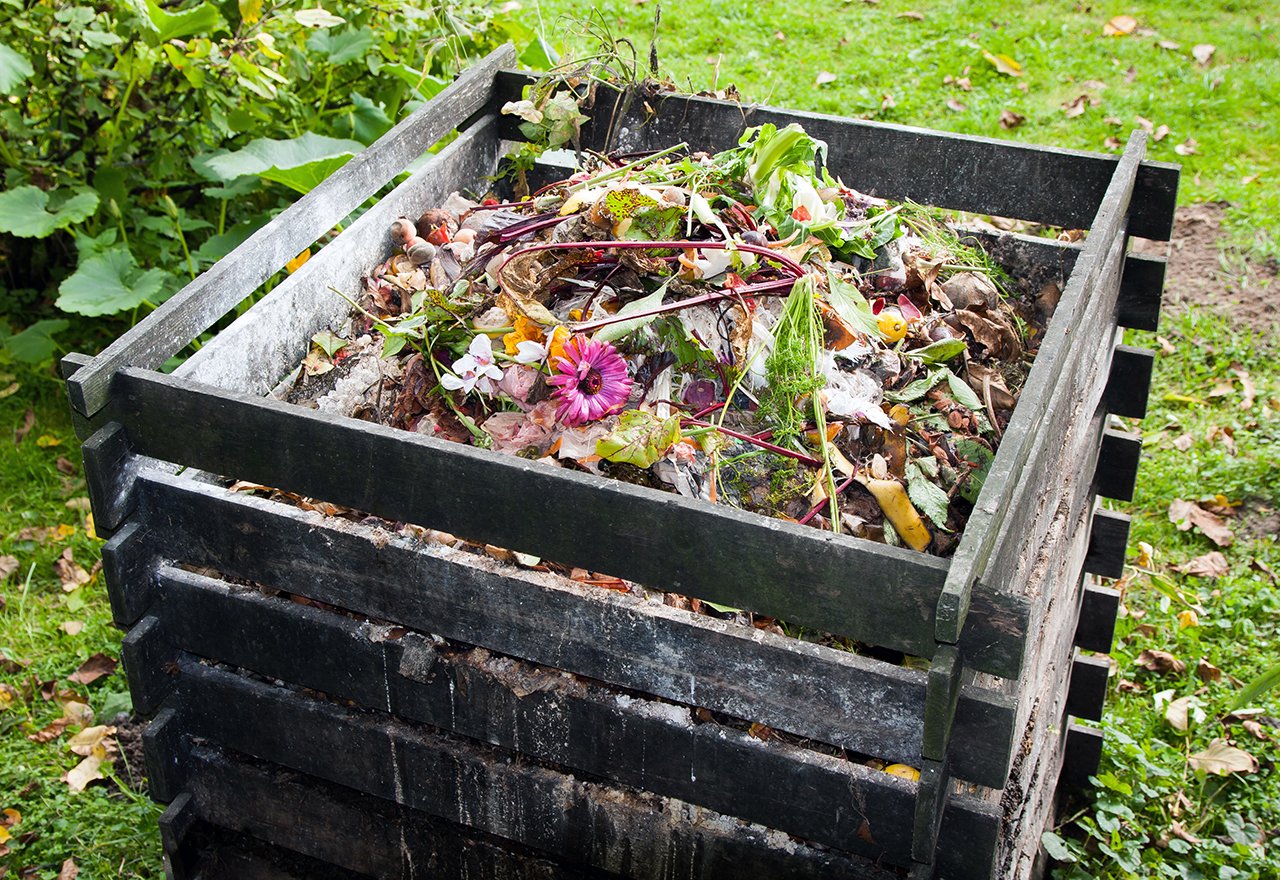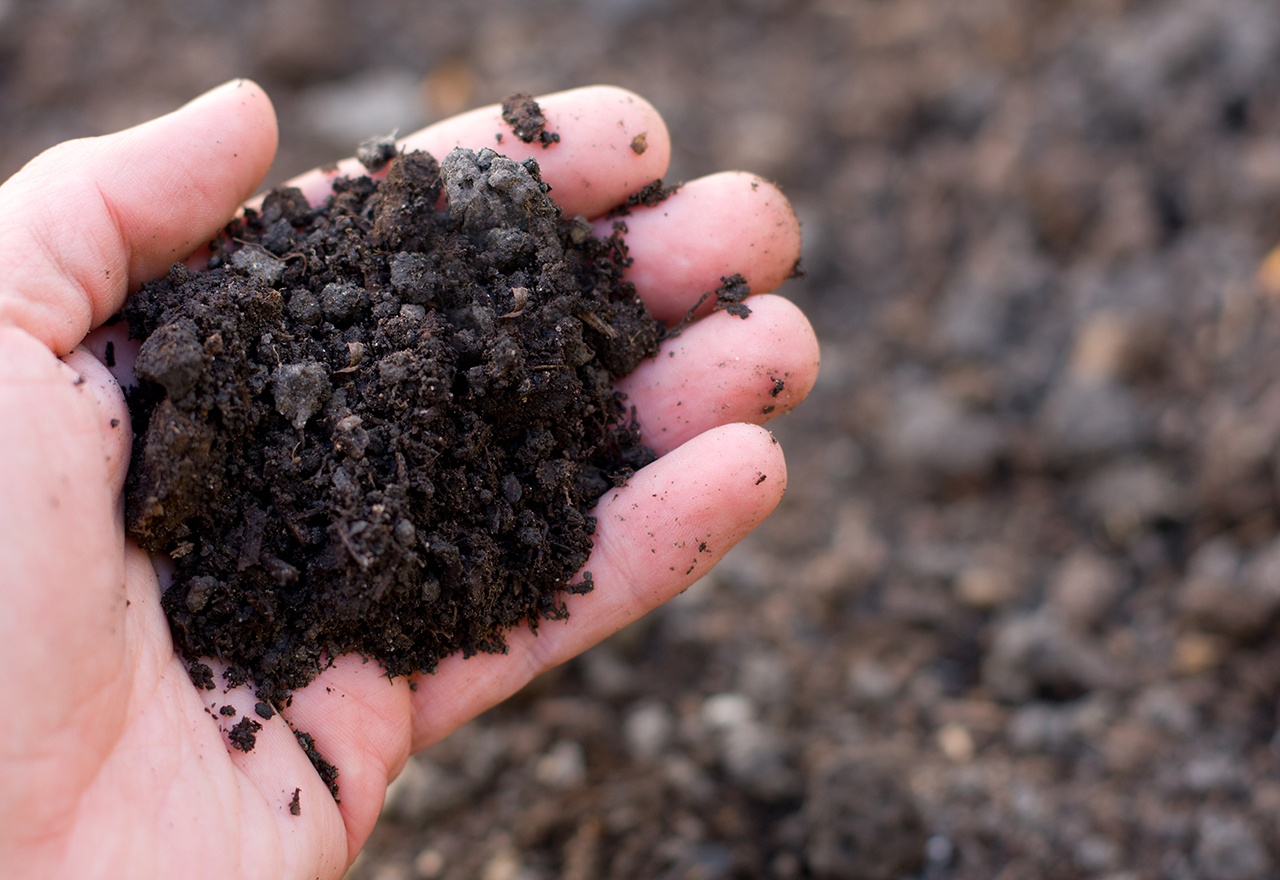Starting Your Family's First Compost Project
by Maureen Wise, on April 2, 2018
If your family is looking to reduce the weight of the trash can you pull to the curb every week, composting your organic waste could cut your landfill trash by up to 30%, according to the US EPA. By composting your kitchen scraps and garden waste instead of landfilling, you’ll also help reduce greenhouse gases produced by landfills and end up with a locally made plant fertilizer (local, as in your own backyard!). We like natural fertilizer here at Good Nature Organic Lawn Care and are here to help you with some steps to start your family’s first compost project.

Choosing Your Location
There are lots of options of where to let your compost decompose. Ideally, you need a spot where the compost will get a bit wet but not saturated so under a tree or behind a shed are optimal spots. You’ll also need to have your compost contained in some way. A rotating drum is a popular alternative. These models often have wheels which makes for easy dispersal of compost when ready but they can be on the pricier side. A simple wooden three-sided or box with no floor works great also. The Cuyahoga County Solid Waste District sells two sizes of floorless plastic bins. These types of bins keeps your compost in contact with the ground underneath so that earthworms and other friendly bugs can move between your compost and the soil, meaning decomposition happens faster. For our central Ohio customers, If you take a quiz or register for a workshop, the City of Columbus with and Franklin Soil and Water Conservation District will give area residents a rebate for your new compost bin.
What to Compost

When starting your compost project, make sure you add the right ratios from the beginning. You want a nearly equal amount of dry or “brown” carbon material to wet or “green” nitrogen material. Browns include shredded paper, dryer lint, dead garden waste, whole grains like brown rice or quinoa, last year’s fallen leaves (preferably mulched) and small twigs broken to about the size of your thumb. Browns are dead stuff. Greens include recently pulled weeds, any and all parts of fruit and veggie scraps, some recently cut grass, tea bags, coffee grinds and filters. Greens are recently dead stuff and whole foods. Throw some earthworms you find in your yard in there too. For a comprehensive guide, check out Can I Compost This.
Remember that backyard composting like this will not break down meat products. That means no bones, fat, broth or meat of any kind - beef, chicken, lamb, fish or anything else. Adding this to your pile will make it smell, introduce the wrong kind of bugs and attract animals that you weren’t intending to share your rotten food with - which will make a big mess in your yard! You’ll also want to stay away from eggs, dairy products, processed grains like bread or crackers, weeds you wouldn’t want spreading to your garden or any food with a high sugar or oil content.
Maintaining
Expect that your first compost project will need some tweaks as you get started. Many families find that they need to add more browns when the compost heap becomes too wet or stinky. If you are not using a rotating tumbler, it is beneficial to mix or aerate your compost weekly or more. A pitch fork or long, aerating tool will do the job. This is not necessary but will decrease the time it takes for your greens and browns to turn into the black, earthy fertilizer that is compost. Otherwise, just let the the pile rot and do its thing. By the next growing season, you should have a bin full of compost to add to your veggie garden, your flower pots and even your indoor plants.
We are in the business of making your backyard a healthy place for your kids and animals. We go to great lengths to make sure that our products and processes are gentle on the Earth and build strong soil. By composting your family’s organic waste, you are taking your commitment to the Earth to the next step.
If you're still looking for more information about how to start a compost pile, checkout The Ultimate Guide to Make Your Own Compost. Another article we recommend reading for composting basics is How To Make Compost. Let us know how your new compost is growing by tagging us on Facebook or Twitter! Happy rotting!












